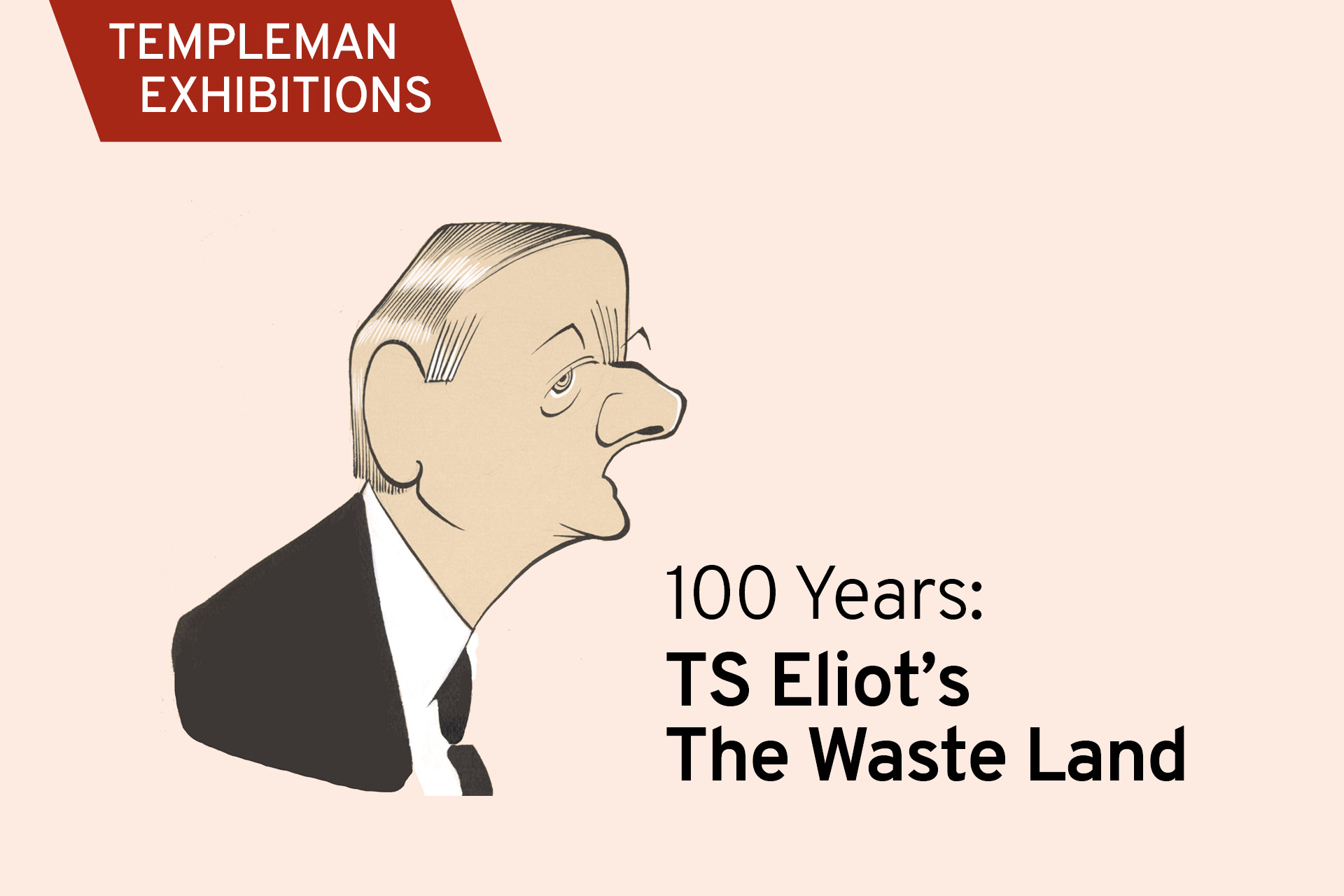This opportunity enabled me to think thoroughly about my own research ideas and gave me the confidence to discuss my research with academic staff and to share them more broadly, even if I have just begun my degree.
On Monday, 12 December, Templeman Gallery launched the exhibition, 100 Years: T.S. Eliot’s The Waste Land, celebrating the centenary of the publication of one of the world’s most popular and studied poems.
With a display of archives and rare books from the Modern Poetry Collection of the University’s Special Collections and Archives, the exhibition launched with poetry readings from staff and students in the Division of Arts and Humanities.
The exhibition features a rare first edition of ‘The Waste Land’ printed by the Hogarth Press, alongside the extraordinary portrait of T.S. Eliot by Patrick Heron, and the bust of T.S. Eliot by Jacob Epstein. As well as exploring the history of the poem, the display also highlights the University of Kent’s links with T.S. Eliot, with archives from Eliot College.
100 Years: T.S. Eliot’s The Waste Land will be open until 30th April 2023. Anyone is welcome to view the items on display.
The exhibition has been co-curated by the Special Collections and Archives Team and the School of English at the University of Kent, including Dr Ben Hickman, Professor David Herd, and Miguel Santos from the School of English; Dr Paul March-Russell (former lecturer in Comparative Literature); and Beth Astridge, Karen Brayshaw, and Christine Davies from the Special Collections Team.
I hope it will encourage other research students beginning their degrees to share their research and to explore the extensive special collections and archives at Kent.
As a research student in the School of English working on Eliot’s ‘The Waste Land’, I am honoured to be involved with this exhibition, especially as the only student contributor. Working on this project included collaborating with the Special Collections Team and academic staff in the Division, curating which items to include from the archives. Further, I wrote panels about Eliot’s life and about my own dissertation topic on the experimental poetry of Eliot, Gertrude Stein and John Ashbery. I endeavoured to make my writing accessible and concise, rather than abstruse and dense. This led to reflecting on the importance of the engagement process with our fields of research.

